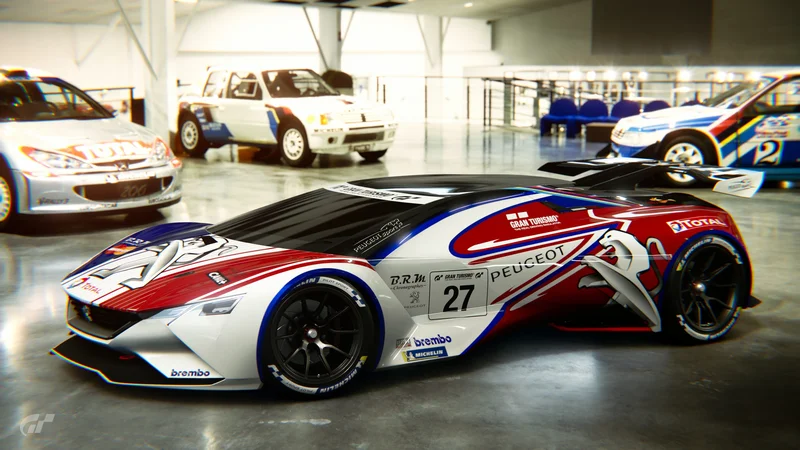The Ecarx & VGT Partnership is About to Redefine Your Car: The Breakthrough Inside and the Future It Unlocks
You might have missed it.
Last week, amidst the usual cacophony of product launches and market forecasts, a quiet announcement rippled through the tech world. It wasn't flashy. There was no slick keynote or dramatic reveal. It was a simple partnership agreement between two companies you may not have even heard of: Ecarx Holdings and Victory Giant Technology. And I believe that when we look back, we will see this moment as the one where the intelligent vehicle finally left the laboratory and prepared to enter every driveway on Earth.
This isn't just another supply chain deal. This is the industrial revolution for the automotive soul.
For years, we’ve been promised the future of mobility: cars that anticipate our needs, that see around corners, that learn and adapt and protect us in ways we can barely imagine. Ecarx is one of the key architects of that future, designing the powerful AI-driven computing platforms—the brains, really—that make this possible. They're already working with giants like Volkswagen and Geely. But a brilliant brain is useless without a body, or more accurately, a central nervous system capable of carrying its thoughts.
That’s where this partnership changes everything. It’s like watching a master watchmaker, who has spent years perfecting a single, breathtakingly complex timepiece, suddenly team up with a factory capable of producing a million of them. VGT doesn't just make components; they are masters of scale, specializing in high-density printed circuit boards—in simpler terms, think of them as the incredibly intricate, multi-layered highways that allow information to travel at the speed of light within a computer. This new alliance is about taking the genius of Ecarx’s designs and making them globally, massively, and affordably available.
The Industrialization of Intelligence
What we are witnessing is the critical transition from bespoke innovation to mass production. It’s a pattern we’ve seen before. For centuries, books were the domain of the wealthy, each one painstakingly copied by hand. Then came the printing press, and suddenly knowledge was democratized. The ideas weren’t new, but their accessibility changed the course of human history. This partnership between Ecarx and VGT feels exactly like that. The "idea" of the intelligent car has existed for a decade; this is the printing press moment.

Ecarx Chairman Shen Ziyu said the deal "sets a new benchmark for advanced computing platforms" (Ecarx partners with VGT in automotive chips - Just Auto). With all due respect, I think that’s an understatement. This isn’t just setting a benchmark; it’s building the factory that will mass-produce the benchmark. It’s about creating an assembly line for automotive consciousness.
When I first read the announcement, it wasn't the corporate language that struck me. It was the sudden, crystal-clear realization of what this meant. This is the kind of backstage deal that truly changes the world, and it reminds me why I got into this field in the first place. The real question this deal raises is profound: What happens to our world, our cities, and our lives when the most advanced automotive AI is no longer a luxury feature but a standardized, globally available component? What does the world look like when every car has a supercomputer for a co-pilot?
From Blueprint to Global Reality
Let's be clear about the scale we're talking about. VGT has massive manufacturing operations across China and Southeast Asia. Ecarx is already a trusted supplier to some of the world's biggest automakers. This partnership isn't a hopeful startup venture; it's two industrial titans joining forces to create a firehose of automotive intelligence that can be integrated into vehicles on a scale we've only dreamed of—it means the gap between a futuristic concept car and the family sedan in your driveway is shrinking at a dizzying, almost unbelievable pace.
This is where we, as technologists and as a society, have to take a deep breath. With this kind of scale comes immense responsibility. We’re not just putting faster computers in cars; we’re weaving a new layer of autonomous intelligence into the very fabric of our transportation systems. The ethical guardrails, the security protocols, the sheer reliability required—these must scale at the same rate as the production lines. The power to put a thinking machine on every corner comes with the absolute duty to ensure it thinks safely and ethically.
But the potential here is what truly captures the imagination. The two companies even mentioned exploring collaborations beyond the automotive sector. Of course they did. Because what they are building isn't just a "car computer." It's a standardized, high-performance AI brain. Can you imagine this technology being the foundation for the next generation of logistics drones, autonomous farming equipment, or even responsive smart city infrastructure? We are watching the birth of a fundamental building block for the future.
The Ghost in Every Machine
So, what’s the real story here? It’s not about a business deal. It’s not about printed circuit boards or supply chains. It’s about the moment we stopped building cars and started creating partners. For a century, the automobile has been a tool—a brute-force machine of steel and gasoline that we command. This partnership signals the dawn of a new era, one where our vehicles become our guardians, our co-pilots, our digital companions that learn our habits and protect us from our mistakes. This is the machinery that will finally put a ghost in every machine, a spark of intelligence that will redefine our relationship with mobility forever. The future isn't just coming; it's officially on the assembly line.
